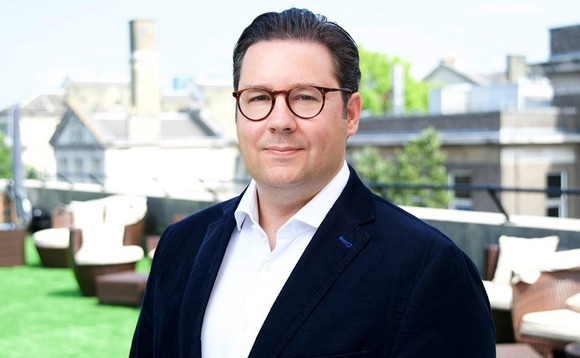
Kompas VC seeks built environment tech opportunities, eyes second fund

Kompas VC, a built environment decarbonisation-focused investor, is seeking further deals for its debut EUR 135m fund as it mulls its next fundraise and looks for new partnerships with manufacturing and construction industry players, managing partner Sebastian Peck told Unquote.
With 11 deals inked (one of which is yet to be announced), the early stage VC firm expects to complete another two in the next four to six weeks paving the way to build a portfolio of 25-30 investments in total, Peck said. Its equity ticket sweet spot is EUR 3m-EUR 5m in seed and Series A rounds, but it can go higher for Series B and as low as EUR 1m, he said.
Kompas' debut fund held a final close in October 2021 and is expected to be fully deployed in terms of first cheques by the end of 2024, Peck said. Circumstances permitting, the firm expects to go back to the market for its second fund in Q4 2023, although a target has not yet been set for the next fundraise, he said.
Its current portfolio includes manufacturing product data development platform Makersite, as well as robotics developer Fruitcore, both based in Germany.
Alongside potential new fundraising and deal plans, the VC firm is continuing to grow its team and will have gender parity following its next hire, Peck said. The firm has offices in Amsterdam, Berlin, Copenhagen and Tel Aviv.
Building opportunities
Prior to founding Kompas, Peck worked at InMotion Ventures (backed by Jaguar Land Rover). The firm's two other partners share a similar automotive industry background: Tel Aviv-based Talia Rafaeli covers Iberia, Israel and the US for Kompas and has previously worked at Porsche Ventures; Berlin-based Andreas Strasser covers the CEE and DACH regions, as well as Italy and the US, and has prior experience with the Volvo Tech Fund and Vienna Energy Group-backed Smartworks Innovations.
Kompas sees an opportunity in the decarbonisation of the industry around the built environment, Peck said. "The built environment accounts for around 40% of CO2 emissions globally, and if we are to transition to a net zero carbon economy, you have to deal with the embedded and operational carbon that comes from of the existing housing stock and new buildings," he added.
The transition the firm's partners have seen in automotive industry – namely the move from internal combustion engine to electric powertrain; from an automotive business model to a multi-mobility model; and from hardware to software and hardware – runs in parallel to the transition currently occurring in the built environment, Peck said.
The team's experience has also afforded it an understanding of the importance of regulation, he said. While Elon Musk has been given much of the credit for "nudging the EV model", its adoption has largely been down to regulation that has forced manufacturers to produce more EVs, he said.
Similar regulation is likely to drive change in the built environment, according to Peck. "Houses have always been something aspirational – they are the biggest asset class in the world. But the perception of houses is starting to shift, and where regulation used to be about property values, it's now more around the environmental impact of a building." He expects to see a "massive regulatory and fiscal shift" which will see property taxes based on how each property performs in terms of energy efficiency, as opposed to its value.
Industry networks
This is bringing different industries together, with an ongoing convergence between the manufacturing and construction industries on modular and prefab buildings, he said. Kompas' team has a "deep background" in manufacturing and will therefore continue to invest in companies that make processes more efficient and more digital, and incorporate data, analytics and robotics, Peck said.
This background and industry knowledge was one of the factors in Kompas' formation in 2021, as well as. "Part of the reason that Kompas came into being in the first place is that I had tried to create a multi-corporate fund at JLR that we could not get across the finishing line," said Peck. At Kompas, however, and with Danish investment holding VKR as a cornerstone investor, the VC can benefit from its experience as an LP, the fact that it has a significant interest in decarbonising the built environment, and its extensive industry network.
"We don't chase the traditional LP base of generalist VCs, it's more about finding LPs in our industry where we can build good relationships and strengthen our network," Peck said. "We work with industry partners who can add strategic value and open doors for our portfolio companies. We have a clear thesis on where the industry is headed and we operate in a niche."
Although the firm has not been in the market long enough to go after traditional institutional LPs, it "will certainly be considering a couple of players who are a little more open to emerging fund managers" with its next vehicle, Peck said. "But our primary target group will be owner-operated businesses who have a footprint in our industry, understand it and can create value."
Latest News
Stonehage Fleming raises USD 130m for largest fund to date, eyes 2024 programme
Sponsor acquired the public software group in July 2017 via the same-year vintage Partners Group Global Value 2017
Stonehage Fleming raises USD 130m for largest fund to date, eyes 2024 programme
Czech Republic-headquartered family office is targeting DACH and CEE region deals
Stonehage Fleming raises USD 130m for largest fund to date, eyes 2024 programme
Ex-Rocket Internet leader Bettina Curtze joins Swiss VC firm as partner and CFO
Stonehage Fleming raises USD 130m for largest fund to date, eyes 2024 programme
Estonia-registered VC could bolster LP base with fresh capital from funds-of-funds or pension funds









